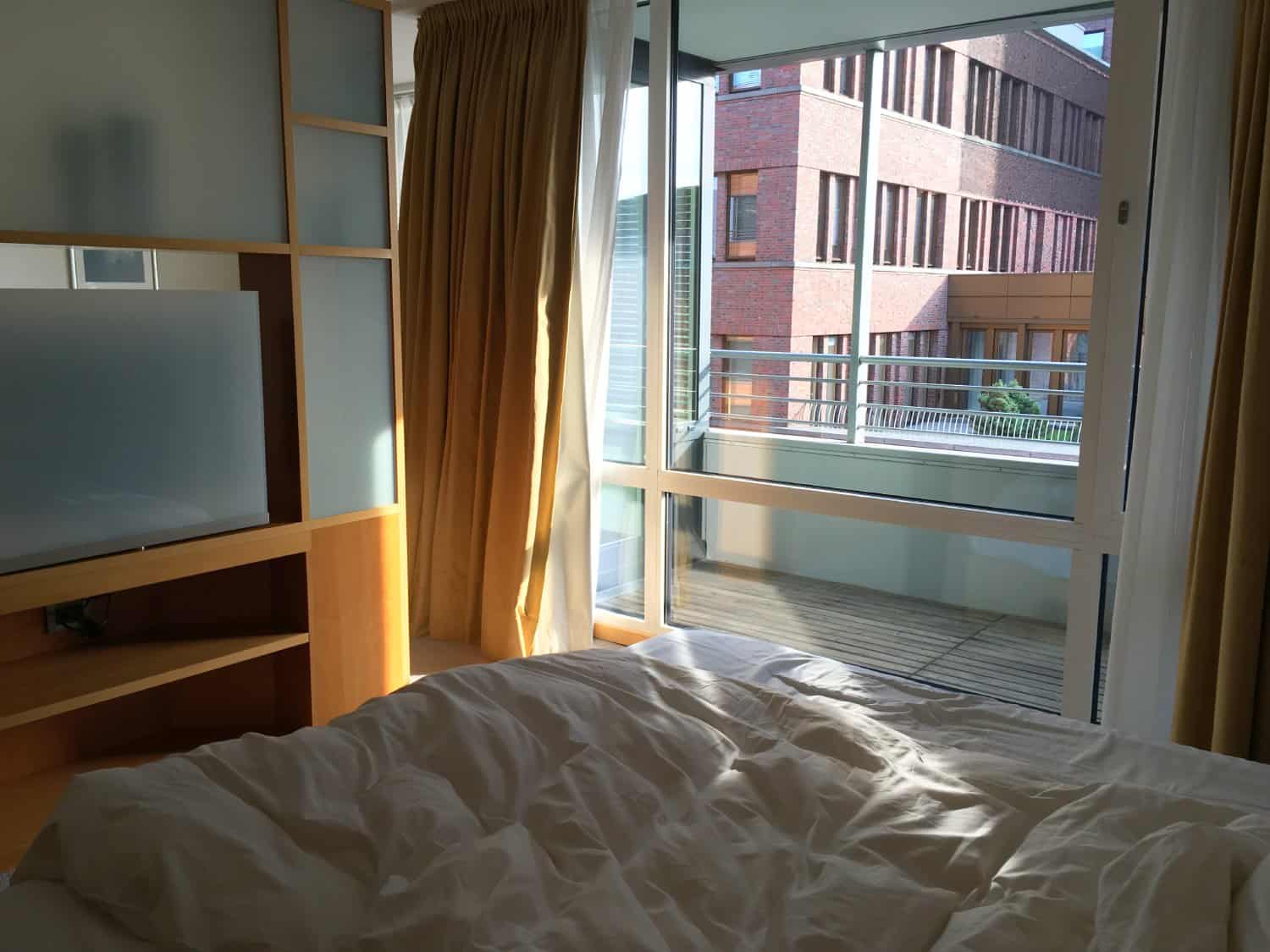Germany is one of my favourite European countries, and I’m fortunate to have visited a whopping four times so far. What can I say? I love regularly dipping in and out of this country on a mission to discover a brand new region, and I’m determined to explore as much of it as possible.
What I love about Germany is its stunning gothic architecture, the rolling hills of its countryside, the festive vibes that emerge during Christmas and Oktoberfest, the picturesque castles that leave you in awe, and the incredibly welcoming locals. I fell in love with the bustle of Berlin, the buildings of Frankfurt, the romance of Heidelberg, the arts scene of Munich, the beer of Cologne, and so much more.
And that’s just the cities! You can’t visit Germany and not venture out to some of the small villages. Seriously — they look as though they’ve emerged straight from the pages of a fairy tale. Throw some seriously beautiful castles into the mix, and you’ll be pinching yourself on a daily basis, wondering if Germany is even real.
In short, Germany is a world-class destination with so much to offer its visitors and explorers. Whether it’s partying the night away at one of Berlin’s most infamous nightclubs, sipping Gluhwein while wandering through cosy Christmas markets, or hiking the soaring mountains of Bavaria, in this country, there truly is something for everyone.
I’ve been recording every single cent I spend in the countries I travel through because I want to give my readers a realistic and accurate look at how much you can expect to spend in each country you visit.
Today, it’s Germany’s turn.
I visited Germany first of all on a high-end vacation with my partner, where I stayed in five-star hotels and dined in Michelin-starred restaurants. Next, I travelled there as a solo backpacker on the tightest of budgets, and then finally, just a few months ago, I took a trip to Germany as part of a couple on a mid-range budget. In other words, I have enough German travel experience to be able to tell you exactly how much you can expect to spend on a trip to this wonderful country, whatever your style might be.
So, let’s get started! Here’s how much it costs to travel in Germany:

How to Save Money on Flights To/From Germany
My fellow Europeans will already know that scoring an affordable flight on this continent is rarely too much of a problem. Thanks to the vast range of budget airlines, getting to and from a different country in Europe is unlikely to break the bank. As always, I recommend heading to Skyscanner to snag yourself a bargain on flights.
If you’re flexible with your itinerary, you’ll find the best deals by searching to flights to “Germany” rather than assuming that Berlin will be cheapest. You may find it costs far less to fly into Frankfurt or Cologne, for example.
Speaking of flexibility, one of the Skyscanner features I use all the time is setting my departure date to be across an entire month rather than a specific day. This shows the cheapest dates to fly: often just switching things around by a few days leads to some surprisingly big savings!
In general, you’ll find that it’s cheapest to fly to Germany outside of high season, which coincides with typical European summer vacation dates (late-June to late-August) as well as December, when Christmas markets reign supreme, and mid-September to early-October, when tourists pour into the country to celebrate Oktoberfest.
If you do have the freedom to visit outside of high season, I highly recommend it, as it’ll mean spending less on flights and accommodation while having to deal with fewer tourists. I’ve visited Germany in early-June, early-September, and mid-November, and found all three to offer up great prices and few crowds.
What if you’re not European?
Fortunately, getting to Europe from North America is surprisingly cheap these days, and I wouldn’t expect you’d need to pay more than around $400 for a return ticket. Allow me to introduce you to one of my favourite websites in the world: Secret Flying! I’d estimate that 80% of the flights I book these days are due to a deal I’ve found on Secret Flying.
If, however, none of the deals on Secret Flying work for you, that’s when Skyscanner comes in! I mentioned them earlier: they check flights with practically every single airline in the world to ensure that if there’s a bargain out there, you’ll find it.

How to Save Money on the Cost of Accommodation in Germany
As always with travel, it’s possible to cut your accommodation costs down to zero if you have the time and patience to seek out an offer.
Housesitting is a great option for free accommodation. This is where you’ll take care of somebody’s house while they’re away, and usually look after their pets, too. It’s best for long-term travellers or retirees as you can’t pick and choose dates and destinations, so you need to have a lot of flexibility as to where you go and at what time of year.
If you do have that freedom, it’s a wonderful way to cut down your travel expenses, soak up some home comforts, and live like a local for a while. I have friends who have housesat in castles before! For free! Trusted Housesitters is the best site for getting started with housesitting, as they have the highest number of listings.
I’m suspecting, though, that for most of you, you’re not interested in the free accommodation and just want somewhere clean, safe, and affordable to rest your head each night. If that’s the case, there are several options available for you.
The first of these are hostels. Germany was the home of the very first youth hostel back in 1912, and there are now hundreds of hostels spread right across the country. While the original-style youth hostels (jugendherberge) often have an under-25 age limit, there are many other kinds that cater to backpackers, families, flashpackers and other travellers of all ages. They’re one of your best options for saving money.
Hostels in Germany are on a par with the rest of Western Europe, and you can expect to spend around €30-35 a night for a dorm bed for a well-reviewed hostel in most parts of Germany, with the price increasing to about €50 a night for the absolute best of the best.
When it comes to private rooms in hostels, you can expect to spend around €80 a night for a clean, basic room in a good location, so if you’re travelling with friends or with your partner, you may find it costs little more to grab some privacy over settling for two beds in a dorm room. €110 a night will get you an exceptionally well-reviewed private room in a hostel or hotel.
I use HostelWorld to find the cheapest hostels, as they tend to have the greatest number of listings at the lowest prices.
And, of course, there are always hotels, which usually come in at around €110-170 a night for a good, clean, mid-range property in a central location. I always use Booking, as they have the most accommodation options for the cheapest prices.

The Cost of Accommodation in Germany
Munich – Jugend- und Familienhotel Augustin (€133 per night): Where do I even start with this fantastic hotel? I originally chose it because of its great reviews, but even then it exceeded my expectations. It’s in a great location, right in the heart of the Schwanthalerhöhe district, easily walkable to Theresienwiese for Oktoberfest and nice and close to downtown. It’s clean and modern without feeling generic or sterile, which isn’t easy, and the staff always seemed only too happy to give advice or help with any queries I had. The bed was super-comfortable, and I loved the view over the garden from my room: it was very quiet and peaceful, especially considering the area. The complimentary breakfast was tasty and filling, and the bar and restaurant were relaxed and well-priced when I didn’t feel like going out one evening. Unsurprisingly, I’ll be staying there again next time I’m in Munich!
Frankfurt – The Flag Oskar M. (€164 per night): Everything, and I mean everything, in this stylish hotel felt modern and fresh. The studio honestly seemed more like a mini-apartment, complete with its own kitchen and fridge, living room, and balcony to sit out on and enjoy the sunshine after a big day out in the city. Not that it was exactly difficult to get out and explore, mind you: the hotel is right in the heart of Frankfurt’s Old Town, so I spent most of my time walking or biking around. The breakfast options were good, but if they’re not included in your room rate, there were loads of great restaurants to choose from nearby instead.
Berlin – Numa Nook Apartments (€167 per night): If you want to live like a local during your visit, Numa is the way to go. In fact, the chic décor and simple pops of colour will have you living like a classy local, and in a great area to boot. This spacious self-contained apartment is clean, modern, and bathed in natural light thanks to all of the floor to ceiling windows. I loved having a kitchen to use when I didn’t feel like going out to eat, and made heavy use of the large balcony whenever the sun came out! While there’s a metro station nearby, I often found myself walking between attractions: it’s only a couple of minutes’ to the designer shopping hotspot of Hackescher Markt, and a 15-minute stroll to the famous TV Tower. Along the way, there were so many cafes and restaurants that I found it hard to choose between them all!
Heidelberg – Hotel Heidelberg Astoria (€125 per night): What a jewel! This cozy bed and breakfast is in a restored turn of the century villa that’s full of old-fashioned charm. There are only a few rooms, and mine was super-clean and comfortable, with freebies like Wi-Fi and parking that many hotels charge for. It’s in the lovely upscale neighbourhood of Neuenheim, which is safe and quiet while still being close to both the city center and Heidelberg Castle (they’re both less than a half-hour walk away). One end of the famous Philosophers’ Way is just a two minute stroll from the hotel, and the river is barely a minute further: I found its banks to be a lovely, peaceful place to wander in the evening. There’s an excellent onsite bar as well, with a great terrace that offers up unreal views of the city!
Cologne – Zur Guten Quelle (€102 per night): An easy walk to the city’s bridges, cathedral, and old town, but with plenty of places to eat and drink nearby, this charming family-owned hotel is the kind of place I really like to stay. The huge rooms felt elegant and sophisticated, but not old-fashioned: all of the fixtures were modern, from the TV to the bathroom and shower. I really liked the food in the restaurant: breakfast is included and was more than enough to set me up for the day, but it’s worth visiting later in the day as well to try out the cider. It comes from the owner’s own orchard! The location was perfect for my three days in the city, and I’d return to this hotel in a heartbeat!
The Cost of Transportation in Germany
In Germany, public transportation is easily accessible and available in many forms, whether you’re travelling in small towns, large cities, or across the country. The modern infrastructure and easy-to-follow connections help ease the nerves of any newbie exploring the country. It certainly did for me.
I was all about the public transportation during my time in Germany. Except for biking around in cities like Munich and Berlin, which was, let’s be honest, more fun (and cheaper!) than sitting on a bus or a train.
In fact, cycling is arguably one of the most used forms of transport by locals, and the country’s bike-friendly vibe makes it easy for visitors to join in the fun. Berlin on Bike offers rentals starting at €15 for 24 hours, for instance, while Pedal Helden in Munich has a great collection of city bikes starting at €18 for eight hours or €25 for 24 hours.
Buses and trams are easy to use and a cheap, reliable way to see a city. Each city runs its transportation system slightly differently, but prices are fairly consistent throughout the country. In Munich you can get Munich Card that includes unlimited public transport within one of two zones, reduced admission fees at various attractions, and a range of other discounts. Passes last between one and five days: I went for a two-day pass and found it very convenient and a definite money saver. Prices start at €18.90 for a 24-hour pass that includes transport within the main metro area.
The Frankfurt Card is even cheaper, costing just €12 for an unlimited 24-hour public transport pass with various discounts on museums, zoos, and tours as well. It’s €19 for two days, and includes travel to/from the airport.
Railway System
S-Bahn, or Stadtschnellbahn (‘rapid train’ in German), is independently owned and services the central and metro areas of large cities such as Berlin, Frankfurt, and Munich. A single-trip ticket in Berlin is €3.50, a 24-hour pass is €9.90, and a 7-day pass is €41.50.
U-Bahn, or underground railways, are the fastest way to get from place to place within big cities, and I’ve found the BVG apps and website to be the easiest way to plan journeys and buy tickets for them. Pricing in Berlin is the same as for the S-Bahn above.
When it’s time to leave one city and venture to the next, the process will likely be a smooth one. Intercity Express (ICE), Intercity (IC), and EuroCity (EC) all connect larger urban areas in a clean and safety environment. I usually use Trainline to quickly filter through the options to find the best way to get from A to B: helpfully, it automatically highlights the cheapest fare. Below are a few example prices for routes I’ve travelled in the past.
- One-way from Munich to Berlin– €69.90
- One-way from Berlin to Frankfurt– €37.90
- One-way from Cologne to Munich– €36.25
- One-way from Munich to Frankfurt– €35.90
The Cost of Food in Germany
If I was to pick two words to describe traditional German food, they’d be “simple” and “hearty”! Germans love their meaty and dense foods, with some of the most popular dishes including schnitzel, smoked pork, bratwurst, brezels (pretzels), Käsespätzle (their take on macaroni and cheese), and Kartoffelpuffer (potato pancakes). Oh, and of course, don’t forget the beer!
Although you can find many inexpensive options in restaurants and cafes, the cheapest way to eat in Germany is by doing your own shopping at the grocery store. You can get a litre of milk for about a euro, a dozen eggs for €2.50, and a loaf of bread for €1.80. If you drink alcohol, grocery stores are the cheapest place to buy it: expect to pay €7 for a mid-range bottle of wine and €1.50 for a 500ml beer.
Of course, if you’re looking to explore the culinary scene, not every meal should be prepared in your hotel room! German eats are too good to ignore. Bear in mind that in Germany, hosts and hostesses at a restaurant don’t typically seat patrons; you seat yourself, and sometimes that means dining at the same table as strangers.
Breakfast: A basic breakfast costs between €5-9 and might include a cappuccino (€3.50) and a croissant or other pastry (€2-4). For something larger, expect to pay around €14 for bread with ham, cheese, and/or boiled eggs, €7 for muesli or porridge, and €10 for a Bauernfrühstück (farmer’s breakfast) with a hearty mix of potatoes, bacon, and egg.
Lunch is traditionally the main hot meal of the day in Germany, and while there’s been a bit of a trend towards smaller options like sandwiches and wraps in recent years, you’ll find many people still tucking into a three-course meal in the middle of the day. It’s usually made up of a soup, a main dish, and a dessert, but the detail varies a lot depending on the restaurant and where you are in the country.
This is where you’ll often find the schnitzel, bratwurst, and other meaty dishes I mentioned earlier, although fish and vegetarian options aren’t uncommon. Each dish is typically offered a la carte, so you can pick and choose depending on your budget and hunger levels.
To give an idea of price, for one of my recent meals I paid €6 for a starter of tomato cream soup, while the main course of pork and potatoes cost €15 and a piece of cake to finish was €4.50. If you budget around €25-30 for your meal (not including drinks), you shouldn’t be far off.
Traditionally, dinner is usually quite light, and not all that different from some of the breakfast options. It’s often made up of sausages, bread and cheese or cold cuts, and a small dessert, and averages around €14.
While it’s traditional for locals to have a large meal at lunchtime and a smaller meal for dinner, that doesn’t mean that everyone does it, or that you have to! You’ll find plenty of places offering hearty dinners or light lunches, so if you prefer to move your mealtimes around to suit your schedule, go for it!
One German food tradition that I just have to mention is Kaffee und Kuchen. In the late afternoon, friends will often meet up at a cafe or bakery for, as the name suggests, coffee and cake! For locals it’s often a social occasion as much as a snack break, but feel free to incorporate it into your own travel experience. I mean, how can stopping for coffee and cake ever be a bad decision? It’ll probably set you back about €6-10, depending on where you are and how many delicious slices of cake you consume!
When it’s time to drink, Germany knows how to get it done. While it’s known for overflowing steins, bars and restaurants don’t limit their offering only to beer. At a decent midrange bar, expect to pay €8-12 for a cocktail (look out for happy hours!), and about €6 for a glass of wine or a bottled beer. The cheapest way to drink is to limit yourself to the (often excellent) local beers that are on tap: they’re usually substantially cheaper, at around €3-4 a pint in pubs throughout the country.
And finally, don’t forget to tip! Rules about tipping in various European destinations are fuzzy, but in Germany good service should be reflected with a 15% tip at the end of the meal.
The Cost of Activities in Germany
The types of activities you’ll do in Germany will likely change a bit depending on what time of year you visit. No matter when that is, though, there’s a lot to see and do, and the countryside is stunningly beautiful in any season.
Let’s start with the castles. There are something like 25,000 of them in the country, and they stand as powerful reminders of Germany’s history and heritage. You’ve almost certainly seen photos of Neuschwanstein Castle in Bavaria, for instance — there’s one earlier in this article if you missed it! It looks like something out of a fairytale, and it’s hardly surprising that it’s a UNESCO World Heritage Site. Entry costs €20.50: book well in advance, as tickets sell out quickly during busy periods. Day trips also run from various nearby cities that usually include a visit to other castles in the area as well: it’s not the easiest place in the world to get to, so these can be a good option.
Heidelberg Palace is one of the largest surviving castle ruins in the country, and it transforms during the summer months with its renowned Castle Festival. The historic fortress becomes a magnificent open-air stage, hosting theatre and orchestral performances under the stars. Ticket prices are relatively affordable, starting at €16: the ticket is also valid for public transport in the area up to four hours before the show. If you want to visit the castle at other times, entry costs €9, plus €6 for a guided tour which is the only way to see the interior.
If you are a lover of Christmas, plan your trip during the month of December and the first week of January- the official Christmas season in Germany ends on January 6. Christmas markets pop up all over the country in honour of the holiday, offering sweet treats, hot cider, beer gardens, gifts, games, and rides. It’s free to roam the markets, but I guarantee you’ll spend some money while you’re there. If you can resist a lebkuchen (gingerbread biscuit/€3) and a steaming mug of glühwein (traditional mulled wine/€4.50) on a cold winter’s night, you have a lot more willpower than me!
This list of must-dos wouldn’t be complete without the mention of Oktoberfest. Despite the name, it actually kicks off in September of every year, and takes over Munich for 16 days. Six million people come for the festivities during the two-week span to celebrate the German tradition with music, games, rides, Bavarian eats and an all-around great time. There’s no cost to attend Oktoberfest itself, but beware: a single beer stein can cost up to €15!
If you aren’t able to make it during Oktoberfest, don’t fret, the legendary Hofbraeuhaus Munich is open year-round. Marketing itself as “the most famous tavern in the world”, if you have a vision of what a Bavarian beerhall might look like, this place doesn’t disappoint. Overflowing steins, gigantic shared wooden tables, and traditional German songs abound in this oversized restaurant, making it basically impossible to do anything but clink the stranger’s stein beside you. Spilt beer is a thing here, but it’s totally worth it.
The Berlin Wall is one of the nation’s biggest tourist, attractions but don’t expect to find much of it left. Much of it was knocked down and carted away in the chaotic days after the border reopened, and what’s left has morphed into a canvas for artists and taggers alike. If you’re a history buff, though, don’t write it off just yet: the importance of this place can’t be overstated.
The East Side Gallery is the largest remaining segment of the wall, and is easily accessible for tourists to stroll along and take in the significance. While you can visit by yourself for free, virtually all city tours include some time here in their itinerary, and you’ll learn a lot more from a local guide than just wandering around by yourself. You don’t have to pay a lot: a half-day walking tour will only set you back €20.
Germany is a country that is a delight to visit, with cities full of personality, a countryside full of heritage, and prices that by the standards of other nearby countries, are relatively affordable. Combine that with an extensive public transport system, and you’ve got no excuse not to explore this amazing country widely and well.
The Cost of Travel Insurance in Germany
If you’ve read any other posts on Never Ending Footsteps, you’ll know that I’m a great believer in travelling with travel insurance. I’ve seen far too many Go Fund Me campaigns from destitute backpackers that are unexpectedly stranded in a foreign country after a scooter accident/being attacked/breaking a leg with no way of getting home or paying for their healthcare. These costs can quickly land you with a six-figure bill to pay at the end of it.
In short, if you can’t afford travel insurance, you can’t afford to travel.
Travel insurance will cover you if your flight is cancelled and you need to book a new one, if your luggage gets lost and you need to replace your belongings, if you suddenly get struck down by appendicitis and have to be hospitalised, or discover a family member has died and you need to get home immediately. If you fall seriously ill, your insurance will cover the costs to fly you home to receive medical treatment.
I use SafetyWing as my travel insurance provider, and recommend them for trips to Germany. Firstly, they’re one of the few companies out there who will actually cover you if you contract COVID-19. On top of that, they provide worldwide coverage, don’t require you to have a return ticket, and even allow you to buy coverage after you’ve left home. If you’re on a long-term trip, you can pay monthly instead of up-front, and can cancel at any time. Finally, they’re more affordable than the competition, and have a clear, easy-to-understand pricing structure, which is always appreciated.
With SafetyWing, you’ll pay $1.50 a day for travel insurance.
How Much Does it Cost to Travel in Germany?
Accommodation: €140 per day for double rooms (€70 per person)
Transportation: €27 per day
Food: €39 per day
Activities: €43 per day
Total amount spent per day: €179 per person
Related Articles on Germany
🌈 15 Best Things to Do in Berlin, Germany
🧭 23 Things to Do in Frankfurt, Germany
🏰 The Absolute Best Things to Do in Munich, Germany
⛪️ The Best Things to Do in Cologne, Germany
💣 Exploring a Berlin Air Raid Shelter as a New Zealander







Great post! It looks like Germany is very affordable for Western Europe, which is lovely to hear. And the photos are stunning! Who knew that Germany had such beautiful countryside? I didn’t! Right, time to look at some flights ;-)
Flights to Germany? If so, yay! You’re going to have the best time, Amelia! Visit all the castles and eat all the food :-)
Nice post. Finding the balance between ultra budget and ideal comfort isn’t always easy but it looks like you’ve nailed it with those hotel recommendations. I spent three months living in Berlin and your price ranges are spot on.
I’m so happy to hear that! It always makes my day when a local, or semi-local, confirms that everything I say is legit, haha.
Perfect timing. Berlin is one of my oversights in Europe and I really want to visit it next year. I’m relieved to find out it probably isn’t going to be as expensive as my recent trips to London and Paris.
You can continue to relax — Germany is inexpensive in comparison to much of Western Europe, and definitely not as expensive as either London or Paris! Have a wonderful trip, Erica!
Berlin is definitely on my list of top places to go in Europe so I’m glad to hear that you like it a lot. I’m a Cold War-era buff and so it’s definitely a place I have to go – the lower prices are just an added bonus.
In that case, you’re going to love it! There’s so much history to dive into and learn about. And when you’re not in the museums, you can sip cold beer in the sunshine, which makes it a winning destination in my eyes.
I have a question about your backpacking days! I’m planning on spending two weeks in Germany while spending as little money as possible… where are the cheapest destinations for me to go?
To be honest, I find the big destinations to have the lowest prices because there’s simply more options available. So the bigger the city, the cheaper you can travel! In Berlin, for example, you’ve got dozens of hostels to choose from, across a whole range of prices (and quality, haha), and so many restaurants in the city — again, so many options that you can find much cheaper prices.
In the more remote areas, where you don’t encounter tourists, you’d expect prices to be lower, but it’s usually the opposite.
So I’d recommend hopping from city to city and eating all of the street food while staying in the cheapest hostels.
That makes sense. Thanks Lauren!
What a useful resource! It puts my travel blog to shame. Love Germany though and especially hiking around the Black Forest. I prefer the scenic countryside to the cities I think.
Thank you! That’s a tough call! I think I’d go for the cities over the countryside, but ask me again tomorrow and I’ll probably have changed my mind.
Nice post! It’s always fun and interesting reading your reflections, and I’m glad that you enjoyed your time in Germany. I have been to Berlin six times over the last decade and always had a fun time. As always, looking forward to reading more :)
That’s so kind of you to say! Thank you :-)
I have a fun tip for you. I recommend trying blablacar.de in Germany. It’s similar to Uber – it’s a rideshare with locals app – but so affordable, and with it, you’ll be able to travel from one city to another for roughly €20-25. I used it all over my time in Germany and saved a lot of money while bringing more comfort to my life. I recommend checking for rides while you’re already in the city, as most of the offers are last-minute ones. It’s a great way to meet the locals and so much fun!
That’s a great tip, Garcia! I’ll add it to my blog post to ensure my readers see your advice.
Dear Lauren
First, I must say that I love your blog and your writing style! It inspired me to start a blog of my own (once I find the right topic to write one on^^) .
I am from berlin, so I was happy you wrote something on my country! Germany is really great for budget travelers, in fact, it’s one of the cheapest Western European countries to travel to. And Berlin, especially, can give travelers all the flair for half of what you would pay in Paris or London or Rome.
I wholeheartedly agree! What a wonderful and inexpensive country. You’re lucky to call it home!
Good for you! It sounds like you loved your time in Germany. Will you write about what you did in Berlin?
Yep! I’ve already published a huge post on the best things to do in Berlin, which covers all of my favourite activities in the city!
Just a note to say I’m so glad you didn’t sell out and get a comped hotel stay in Germany like 95% of other travel bloggers would have done! The fact you always pay for everything out of your own pocket gives your blog so much more integrity. Thank you!
Thanks so much, Sam! I always want to show my readers that travel is affordable and attainable and I can’t do that if I don’t pay for everything myself :-)
Hi Lauren! I am from Berlin and I am so happy that you enjoyed your many trips in Germany. Next time you’re in Berlin, I recommend you to just stroll around Prenzlauer Berg especially Kastanienallee and enjoying a beer in a Biergarten. Recommend you the very girly pink beer which actually tastes more like rasberries than beer, its called Berliner Weiße (i love it :) ), or a Radler, beer mixed with sprite.
I’ve definitely had a Radler before, but the raspberry beer sounds right up my alley! I’ll have to make my way back soon :-)